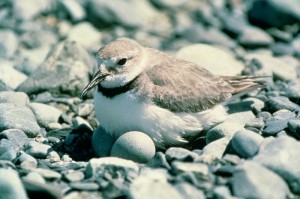The Wrybill is a species of wading bird which breeds only in the Canterbury and Otago regions of South Island. These regions have wide stony riverbeds that form what’s called braided riverbeds.
It is here that the wrybills gather in spring to breed. They make a small nest scraped together on the ground and lined with pebbles. They lay two eggs which are camouflaged amongst the riverbed stones. The eggs take about 30 days to hatch and the chicks leave the nest within a few hours.

They are led by their parents to a feeding area close to a shallow stream near the major river. It is the only bird in the world that has bill that curves to the left.
This adaption helps the wrybill turn over riverbed rocks to extract caddis-fly and mayfly larvae and hunt for small shell fish on mudflats. They feed in shallow channels, shallow rapids and the edges of pools. Wrybill are travelling north at present to spend winter at the mouths of rivers and the mud–flats of the large harbours of the upper North Island.
The largest flocks are normally on the Firth of Thames and it is possible to see up to 75% of the entire (world) population in one flock. It is estimated that the wrybill population is only about 4000 -5000 individuals and declining. . The decline is mainly due to the destruction of their breeding habitat.
Braided river beds change with the dramatic fluctuations in water levels. Added to this natural fluctuation is the presence of hydroelectric schemes which change water levels and damage the habitat of the wrybill. Weeds encroach on the bare gravel that wrybill live on and this reduces places for the birds to nest. Weeds also provide more cover for predators such as cats, rats, stoats, weasels and hedgehogs who raid the nests and eat the eggs and wrybill chicks. The survival rate of eggs and chicks is low.
Images courtesy of Waikato Regional Council, NZ Fur Seal Brenda Greene, Weta DOC, Green Gecko Neil Fitzgerald Photography. Duck header photo courtesy of Phil Brown
Site Map Powered by PowerSite™ 0.008s

